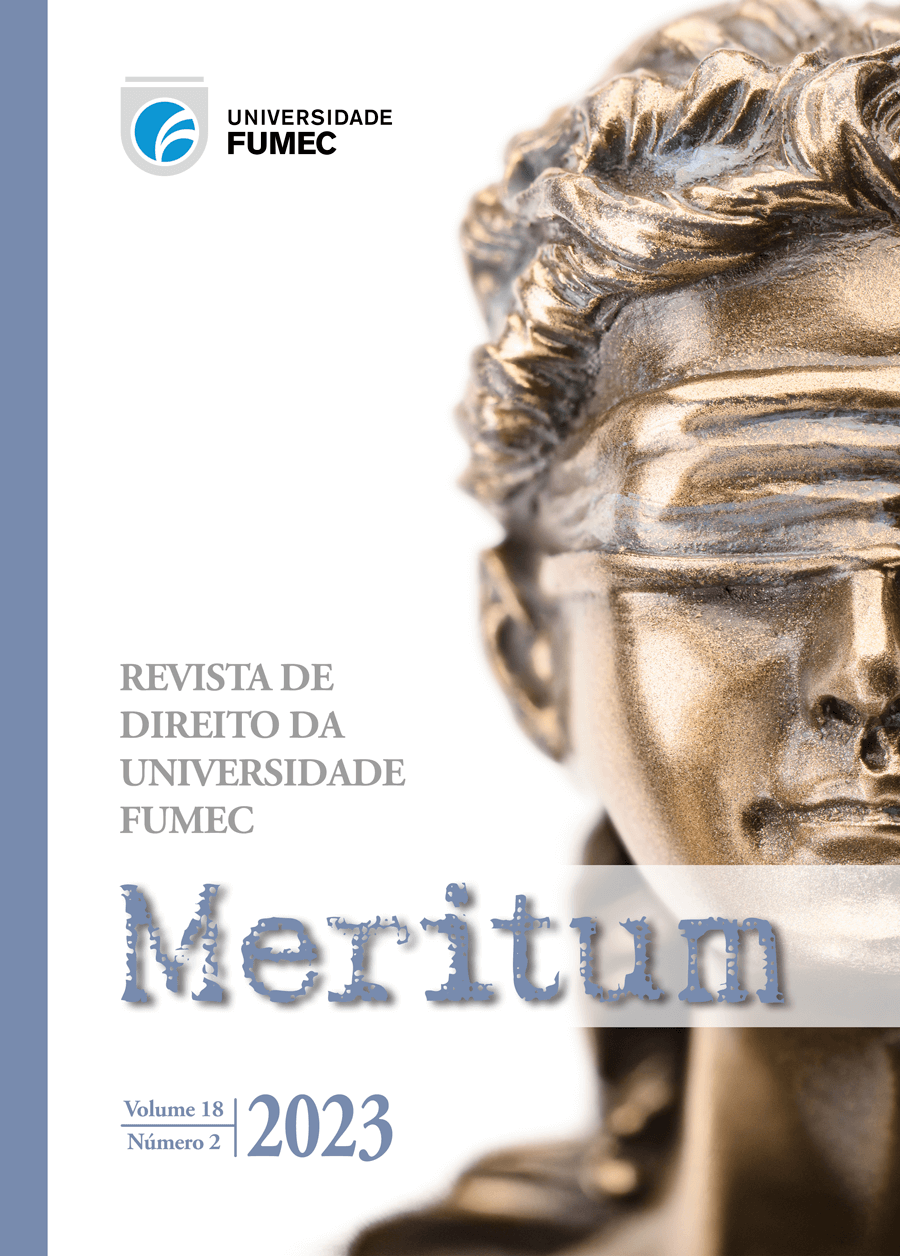A INVISIBILIDADE JURÍDICA DOS TRABALHADORES DE PLATAFORMAS DIGITAIS
O TRABALHO REAL NA ERA DIGITAL
DOI:
https://doi.org/10.46560/meritum.v18i2.9159Abstract
The transformations of capitalism verified in the last decades culminated in the existence of new labor morphologies and a differentiated structure regarding the exploitation of human labor. The intense use of disruptive technologies guides and subordinates thousands of workers around the world today, who are subjected to the virtual reality of digital platforms and algorithms. This time, the present research aims to make considerations about this digital economy and how it has the power to provoke a remodeling in the world of work, bringing with it negative consequences for workers of lack of protection and uberization. The study intends to bring to light the real need of the Brazilian Individual and Collective Labor Law to protect the rights and guarantees of workers in this differentiated and multifaceted reality in the light of the constitutionalization of Labor Law. The final analysis of the present study allows us to conclude that the new form of productive decentralization that emerged from digital platforms, based on crowdwork and on-demand contracting, is based in most cases on the employment relationship recommended in the CLT, representing most of the demands brought to the Judiciary explicit situations of fraud in the hiring of independent workers. For the development of the research, the method of deductive approach and the methodology of bibliographic research were used.
Downloads
Published
Issue
Section
License
Autores que publicam nesta revista concordam com os seguintes termos:
- Autores mantém os direitos autorais e concedem à revista o direito de primeira publicação, com o trabalho simultaneamente licenciado sob a Licença Creative Commons Attribution que permite o compartilhamento do trabalho com reconhecimento da autoria e publicação inicial nesta revista;
- Autores têm autorização para assumir contratos adicionais separadamente, para distribuição não-exclusiva da versão do trabalho publicada nesta revista (ex.: publicar em repositório institucional ou como capítulo de livro), com reconhecimento de autoria e publicação inicial nesta revista;
- Autores têm permissão e são estimulados a publicar e distribuir seu trabalho online (ex.: em repositórios institucionais ou na sua página pessoal) a qualquer ponto antes ou durante o processo editorial, já que isso pode gerar alterações produtivas, bem como aumentar o impacto e a citação do trabalho publicado (Veja O Efeito do Acesso Livre).






